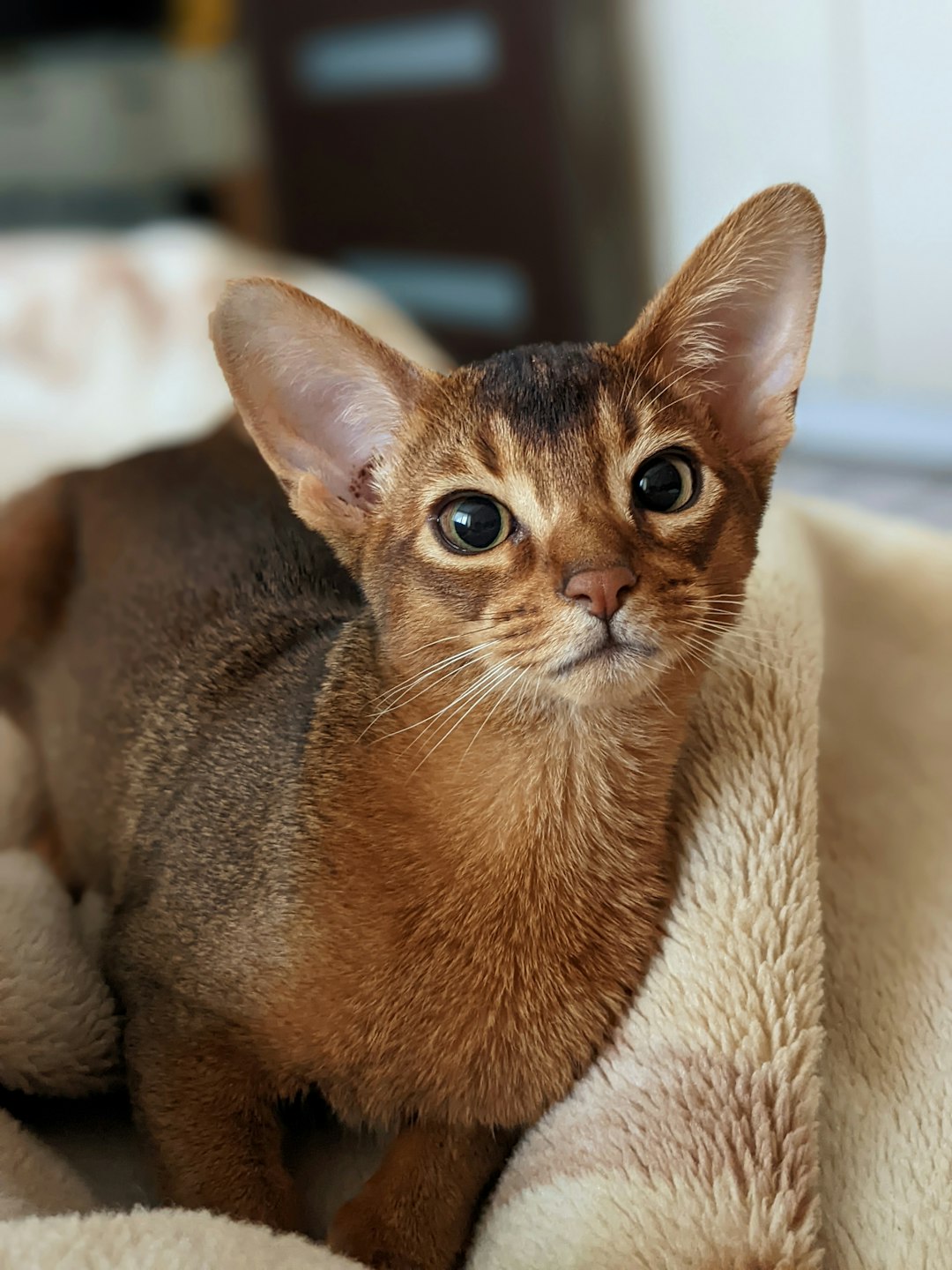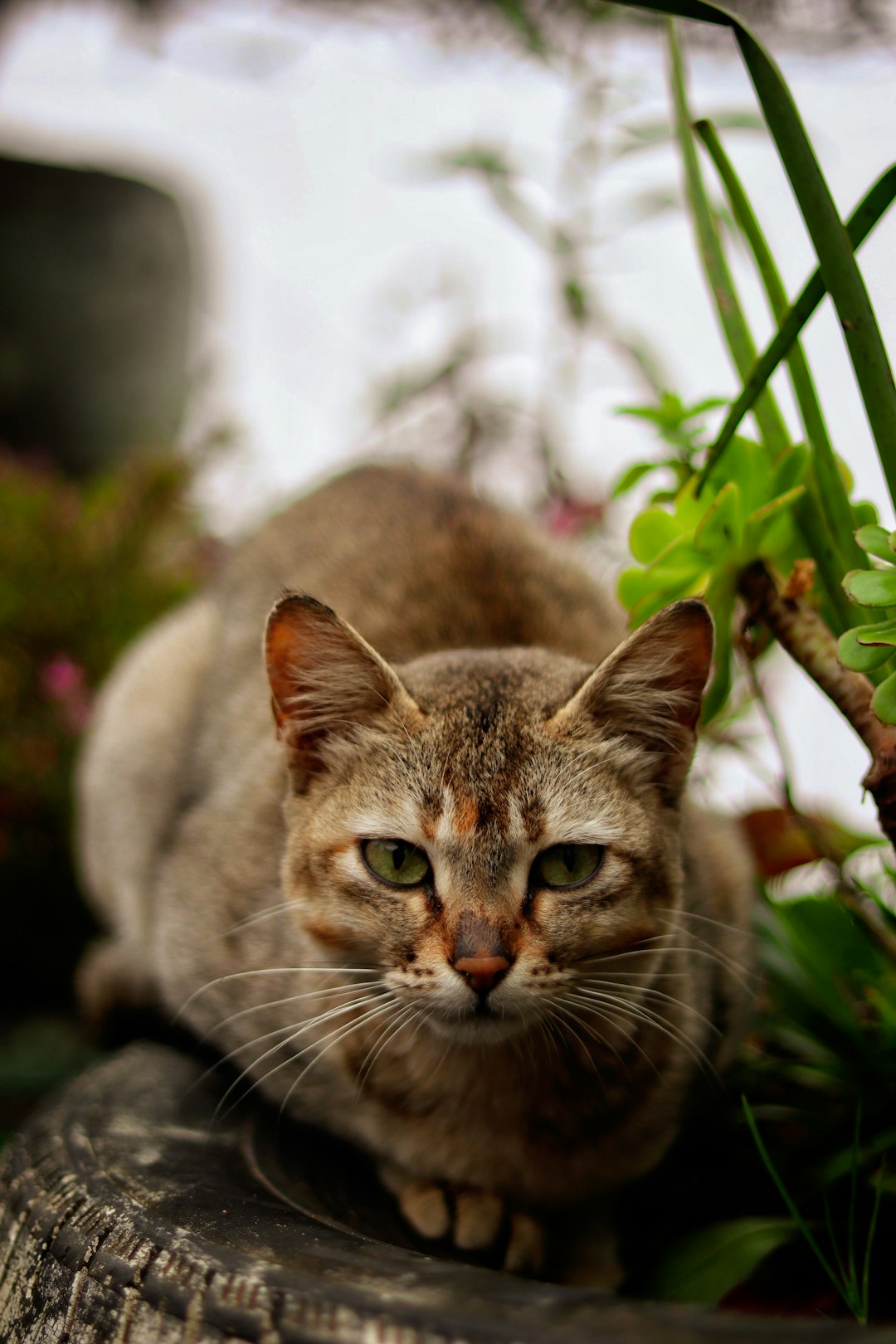Curly haired cats, also known as the feline form of the poodle, come with a style that can make even the snobbiest runway models jealous. These adorably wavy creatures not only flaunt their fabulous curls but also bring their own unique quirks to the table, or should I say, the litter box. From their special grooming needs to their sassy antics, keeping up with a curly haired cat is a delightful adventure! So, buckle up cat lovers, as we dive into the fabulous world of these unique fluffballs and figure out how to love them right!
The Unique Characteristics of Curly Haired Cats
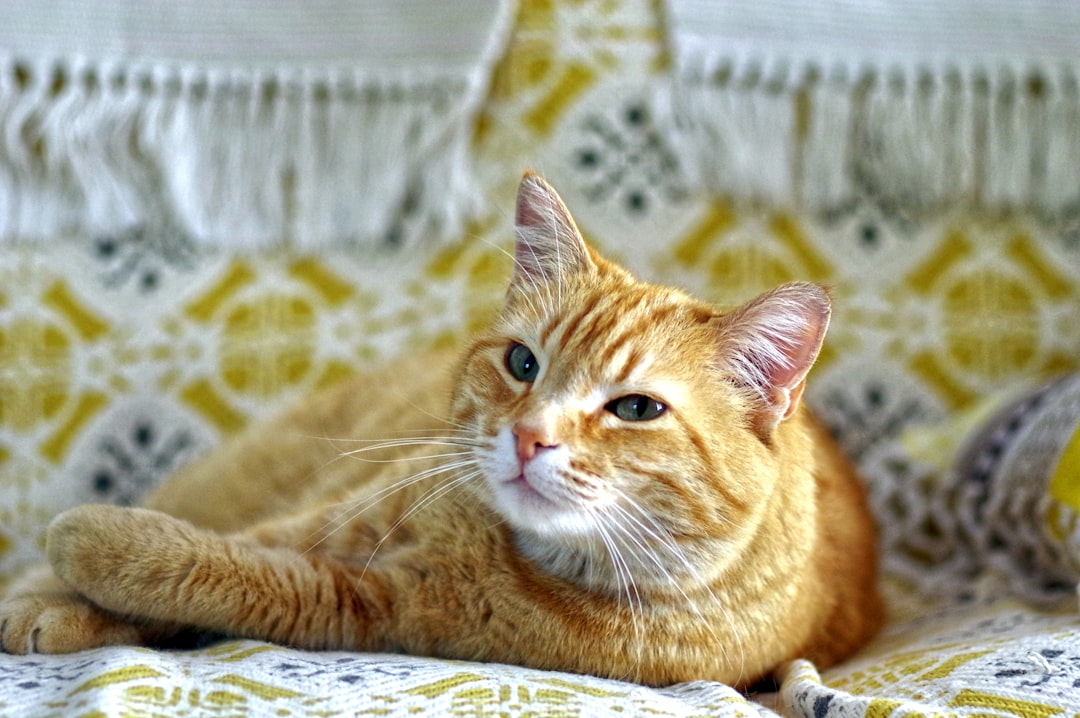
Curly haired cats are like the superstars of the feline world, flaunting their fabulous, frizzy fur with pride! From their charming curls to their quirky personalities, these furry companions have some unique features that set them apart:
- Fabulously Fuzzy Fur: The most obvious trait, of course! Their curly coats come in various textures, just like a perm gone right – or wrong, depending on your taste. They can’t help but strut their stuff!
- Less Shedding: Yep, you read that right! The curly hair creates less dander and hair, turning your home into a (somewhat) fuzz-free zone—perfect for those allergic to less fabulous pet hair.
- Cuddly Nature: These cat-tastically cuddly companions tend to enjoy snuggling, giving you the chance to show off your best cat cradle techniques.
- Distinctive Looks: Curly haired cats all have their unique flair! They can range from the luxurious LaPerm to the adorable Cornish Rex. Each breed offers its own remarkable curly-haired charm!
So if you’re lucky enough to have a curly haired cat in your life, you’re in for a purring good time!
Popular Breeds of Curly-Haired Cats
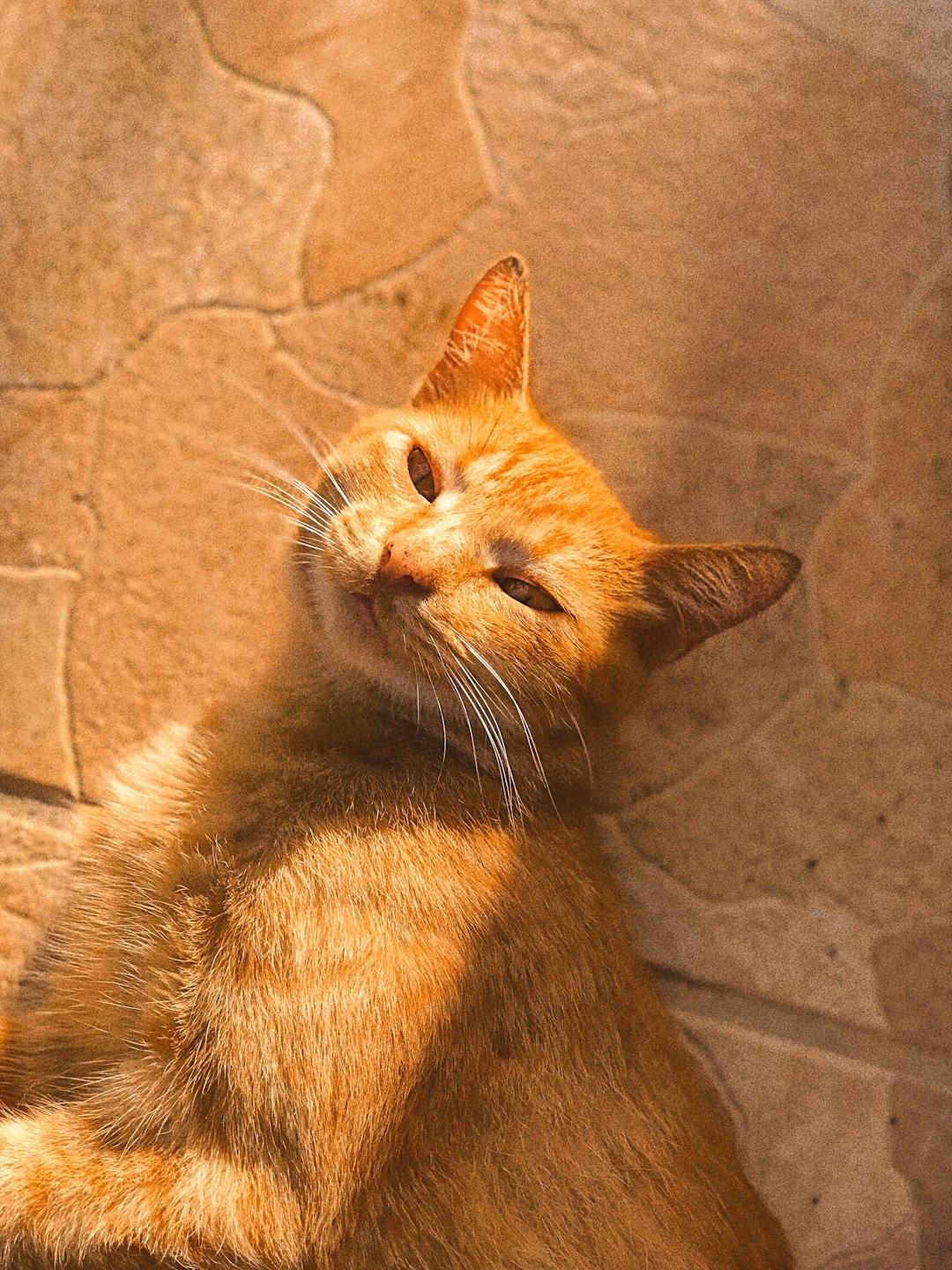
If you think all cats are fluffy and fabulous, prepare to be dazzled by the world of curly haired cats! These felines come with a wave of charm, making them the trendsetters of the kitty kingdom. Let’s dive into some of the most popular breeds that flaunt those fabulous curls!
1. Cornish Rex
- Curly apart: Yes!
- Personality: Playful and mischievous.
- Bonus: They love cuddles but hate cold weather, so keep that thermostat up!
2. Devon Rex
- Curly apart: Absolutely!
- Personality: Clownish with a side of sass.
- Bonus: Known for their big ears and little attitude.
3. LaPerm
- Curly apart: You betcha!
- Personality: Gentle and affectionate.
- Bonus: They might just curl up and nap on your keyboard!
4. Selkirk Rex
- Curly apart: You know it!
- Personality: Sweet as candy.
- Bonus: Has a grand, plush coat that’s simply irresistible to pet!
Curly-haired cats, whether they’re bouncing around like playful goofballs or lounging like royalty, ooze personality and charm. So, the next time you pat a curly haired cat, appreciate those divine curls and the delightful character they come with!
Grooming Requirements for Curly-Haired Cats
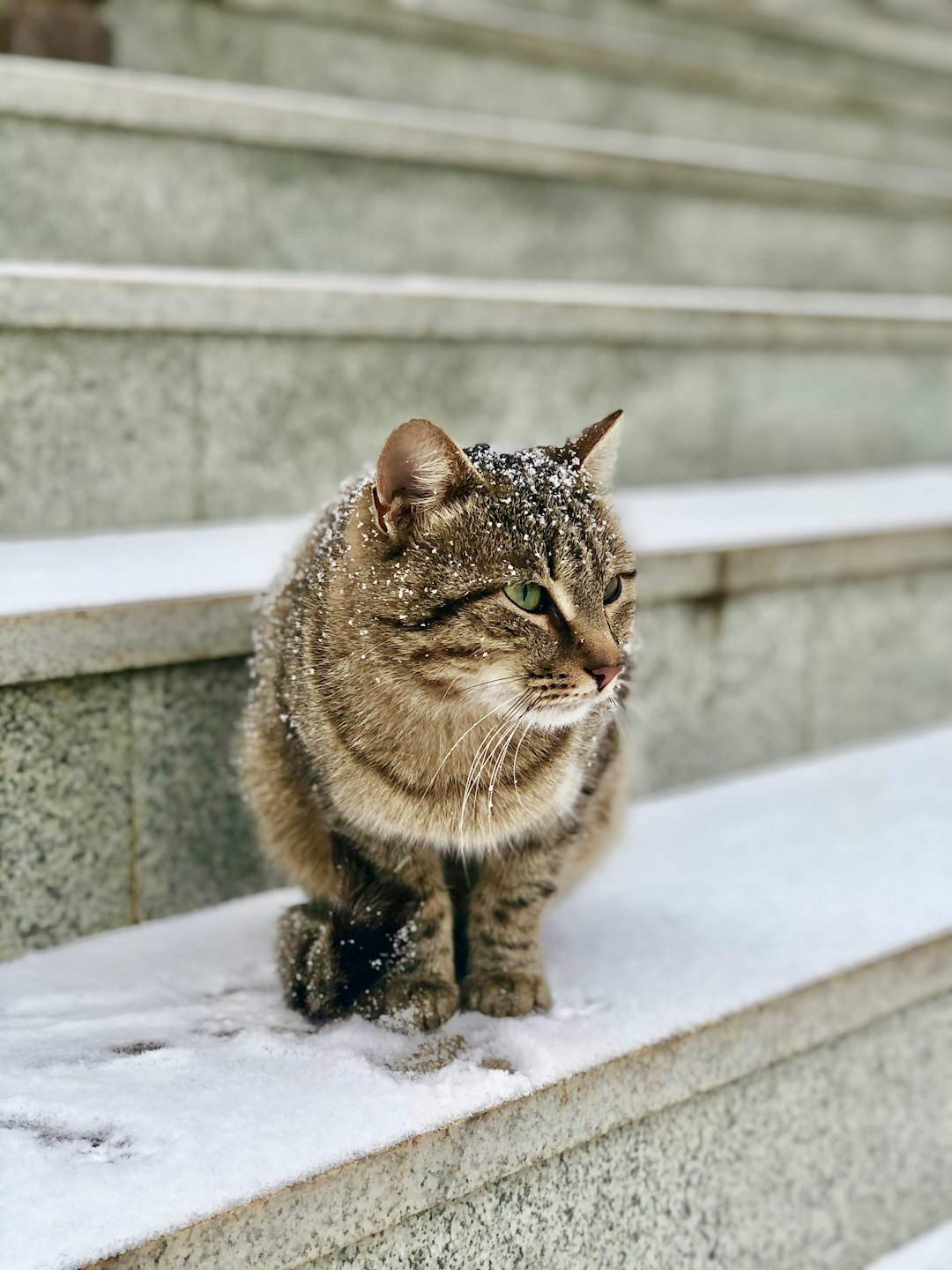
Ah, the curly haired cat! These adorable fluff balls not only steal hearts but also require some extra TLC when it comes to grooming. Think of it as a spa day—but for your feline friend! Here are a few essential grooming tips:
- Brush regularly: Aim for once or twice weekly to prevent mats and tangles. Curly fur loves to misbehave if left unattended!
- Use the right tools: A slicker brush or a comb works wonders on a curly haired cat’s coat. Using the wrong tools could lead to a fur-flying fiasco!
- Bath time bliss: While cats usually don’t need frequent baths, the curly-haired variety might benefit from a gentle rub-a-dub every few months. Use a cat-friendly shampoo!
- Check those ears: Clean their ears regularly. A curly-haired cat’s unique coat can sometimes hide trouble!
- Nail trimming: Keep those claws in check! Trim regularly to avoid any accidental furniture casualties.
So, roll up your sleeves and prepare for some magical moments with your curly haired cat! Grooming can definitely be a mix of bonding and comedy—think less catwalk, more cat-tastrophe!
Understanding Skin and Coat Care
Ah, the Curly haired cat! Their luscious curls charm everyone, but keeping those curls in tip-top shape? That requires some know-how. Here’s how to pamper your fluffy friend like royalty:
- Regular Check-ups: Just like humans, each curly haired cat needs furry fortification! Regular vet visits ensure your cat’s skin stays itch-free and happy.
- Bathing Basics: Unlike regular cats that luxuriate in a good spat of dry grooming, your curly haired cat might need a bath every now and then. Use gentle, cat-friendly shampoo. Do this strategically—as a hairy tornado can emerge out of nowhere!
- Hydration Nation: A proper diet aids in maintaining your furball’s coat. Foods rich in omega fatty acids work wonders. Healthy skin leads to glistening curls!
- Brush It, Don’t Rush It: Although they’re curly, these cats love a good brushing. Use a wide-toothed comb to avoid tangles; think of it as a daily meeting at the “Curls are Fabulous” board!
So, remember, keeping a curly haired cat’s coat and skin healthy isn’t rocket science; it’s just a bit of love (and preventive magic)!
Common Behavior Traits of Curly-Haired Cats
Curly-haired cats aren’t just about their cute, wavy pelts; they also come with some fantastically quirky behavior traits that’ll keep you entertained. Let’s dive into their feline personalities, shall we?
- Affectionate Sprouts: Curly-haired cats adore their humans! Expect lots of headbutting and cuddles. Just be ready for them to steal your lap faster than a lottery win.
- Playful Shenanigans: These cats love to play… just about anything! Feather toys, laser pointers, even that pesky yarn you thought you could keep hidden. They’ll turn your living room into their own personal amusement park!
- Chatty Kathy: Ever wanted a feline that talks back? The curly-haired cat has a flair for vocalizations. You might find yourself having entire conversations—or debates—over the length of their dinner.
In summary, a curly-haired cat behaves like a cuddly goat and a sassy troll combined. Their unique traits add a lot of sparkle to any home! So, buckle up for a wild and whimsical ride with your fluffy absurdity!
Common Behavior Traits of Curly-Haired Cats
Ah, the curly-haired cat—a true enigma wrapped in fluffy, springy curls! If you think these adorable furballs are just pretty faces, brace yourself for a personality that’s as distinctive as their hairdo. Here are some common behavior traits to watch out for:
- Affectionate Shenanigans: Curly-haired cats, like the LaPerm, tend to be extra cuddly. They’ll curl up with you (pun intended) and purr like little engines, proving that they’re not just a pretty coat.
- Playtime Pros: Expect your curly-haired cat to be an acrobat. They love playtime gymnastics, leaping and twisting mid-air. So, keep your laser pointers and feather toys handy!
- Curiosity Killed the Cat: These furballs are natural explorers. They’ll investigate every nook and cranny, often leaving chaos in their wake—watch out for those cat toys, they can be deadly!
- Chatty Companions: Many curly-haired cats like to engage in conversations. You might think you have a little feline philosopher or maybe they’re just commenting on your snack choices!
In a nutshell, a curly-haired cat isn’t just about the luxurious curls; they’re bursting with personality and charisma, making every day a little more interesting!
Tips for Training and Bonding with Curly Haired Cats
Ah, the curly haired cat! With their impressive ringlets and quirky personalities, these feline friends can get you wrapped around their little paws in no time. But how do you bond and train a creature that’s equal parts diva and fluff? Fear not! Here are some pawsitively effective tips:
- Patience is Key: Just like teaching a toddler to share, training a curly haired cat requires buckets of patience. They might take their sweet time to get the memo.
- Use Treats: Reinforce good behavior with tasty treats. Your curly-haired cat loves snacks, so turn them into a training aid!
- Playtime: Engage your cat with toys—think feather wands, laser pointers, or anything that can sparkle their interest.
- Establish a Routine: Cats appreciate consistency, so keep a routine for feeding, play, and training sessions.
Comparison of Training Techniques:
| Technique | Effectiveness | Fun Factor |
|---|---|---|
| Treat training | High | Medium |
| Clicker training | Medium | High |
| Interactive play | High | High |
Remember, every curly haired cat is different, so adjust these tricks as needed. Happy training and bonding with your fluffy superstar!
Tips for Training and Bonding with Curly Haired Cats
So, you’ve got a Curly haired cat, huh? Well, buckle up! Training and bonding with these fabulous furballs can be a hilarious adventure. They may be more wavy than traditional cats, but their charm is off the charts! Here’s how to make your training sessions feel less like a reality show audition and more like a fun party:
- Treats are King: Use tasty treats to motivate your curly-haired cat. It’s like bribing a toddler with candy, but somehow, more adorable.
- Short Sessions: Keep training sessions to about 5-10 minutes. Think of it as speed dating. Quick, informative, and oh-so-fun!
- Encourage Play: Use toys like feather wands or laser pointers to engage your curly-haired cat. They’ll get exercise and have a blast.
- Patience is Key: Remember, they are cats and have selective hearing, especially when treats aren’t involved!
- Bond with Scratches: Curly haired cats love a good chin scratch. It’s the equivalent of a spa day for them!
With these tips, your journey with a Curly haired cat will be a blend of laughter and love!
Frequently Asked Questions
Why do curly-haired cats have those bizarre curls?
Curly-haired cats, like the famous Cornish Rex and Devon Rex, sport their quirky curls thanks to a delightful genetic mutation. Think of it as nature’s way of giving them an exotic hairdo! These curls happen because the hair follicles produce hair that curls around rather than growing straight. It’s like they have a permanent bad hair day but in the best possible way! You could say they’ve embraced the latest trend in feline fashion, even if they often look like they just rolled out of bed.
Do curly-haired cats require special grooming?
Ah, the million-dollar question! Despite their fluffy appearance, curly-haired cats don’t need a ton of grooming, which is a relief for those of us who can barely manage our own hair! A gentle brush once a week is sufficient to keep their coats free from debris and tangles. However, don’t forget that they have a knack for getting into messes—apple sauce, here we come! Just be sure to check behind his ears for any ‘mystery substances’ that may be hiding. You never know with these adventurers!
Can curly-haired cats get too hot or too cold because of their fur?
Absolutely! Those adorable curls may look cozy, but they can be a bit of a double-edged sword. In hot weather, their curls can trap heat like a bad relationship! To keep your curly companion cool, place fans around the house or let them lounge on the coolest tiles you can find—yes, you may have to bribe them with treats. As for the winter, cuddle times are a must because while they have a fabulous coat, they still can feel the chill if the temperature drops too much. Snuggle up and enjoy a movie night together!
Are there any health conditions specific to curly-haired cats?
While curly-haired cats are generally as healthy as a cat can be, they do have a few quirks. Some breeds, like the Cornish Rex, can be more prone to skin issues due to their unique fur. It’s like the universe decided they needed to add a dash of extra care to their already fabulous lives! Regular check-ups with the vet are essential to keep an eye on those adorable curls. Just remember, with great cuteness comes great responsibility!


